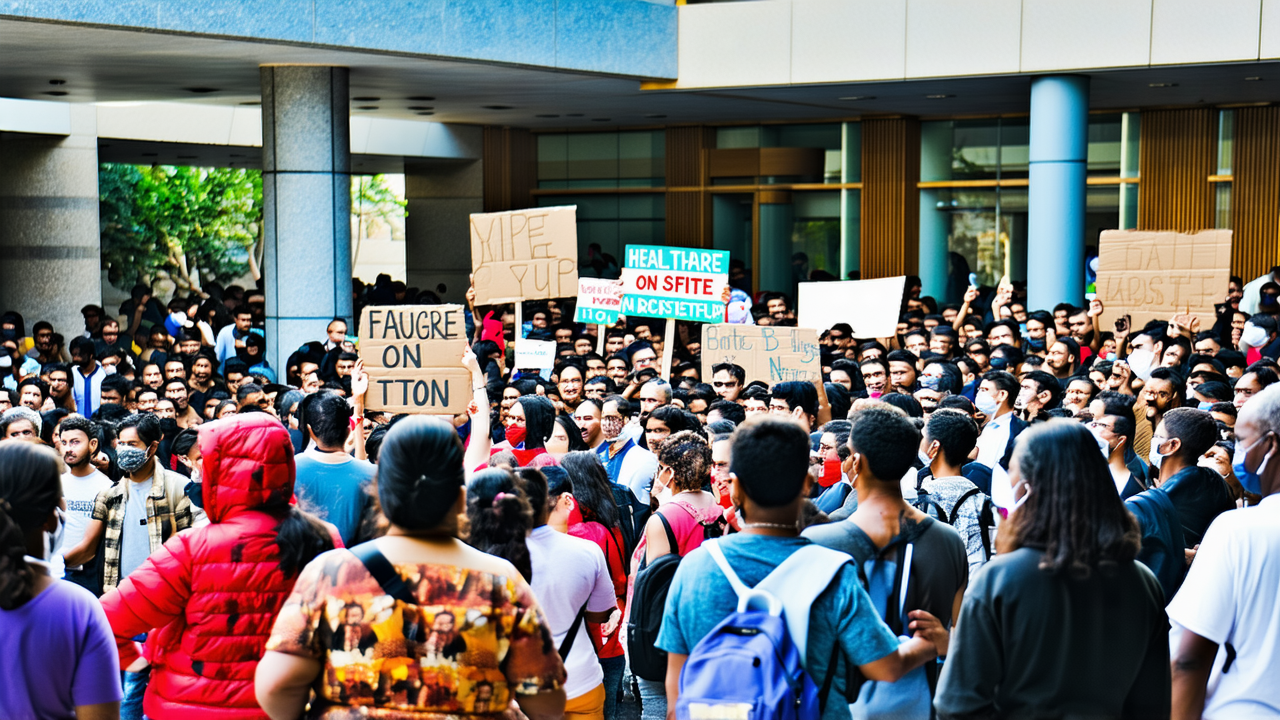Taupō Residents Rally for Better Hospital Conditions as Doctor Shortage Persists
Residents Demand Better Hospital Working Conditions in Taupō
Residents of Taupō are taking a stand to ensure the local hospital remains a viable and well-staffed healthcare facility, as the town grapples with a severe shortage of medical professionals. The issue has reached a critical point, with contingency plans drafted to potentially transfer patients to Rotorua Hospital if Taupō's clinic is forced to close, leaving the area’s 40,000 residents without easy access to emergency care.
At a recent public meeting attended by over 100 locals, community members voiced their concerns and pledged to take action. Longtime resident John Davis expressed his willingness to organize a committee to improve hospital conditions. He emphasized the importance of ensuring that the hospital not only survives but thrives. 'We'll get people who are prepared to stand up and be counted,' Davis said, highlighting the community's determination to protect a facility that has proven vital to their lives.
The meeting, organized by Patient Voice Aotearoa, brought together residents, healthcare workers, and local leaders to discuss potential solutions. Suggestions ranged from helping new doctors find housing to creating better living conditions in the area. Local nurse Iretana pointed out the strain on the emergency department, saying that the shortage of staff often leads to misdiagnoses and long wait times for patients.
Despite the community's efforts, challenges remain. Taupō Hospital currently employs only 3.3 full-time equivalent senior doctors out of nine funded positions, forcing the reliance on expensive locum staff and leading to burnout among permanent staff. A recent agency list revealed the hospital would need locums for seven days between August 3 and 18, with hourly rates as high as $350 for night shifts.
Dr. Robin Chan, a senior doctor at the hospital, highlighted the lack of targeted funding for rural medical workforce development. She stressed that urban-focused policies have not worked for smaller communities and that attracting and retaining doctors in rural areas requires a different approach. 'The greatest predictor of rural practice is actually being from a rural town,' she told the meeting, urging locals to support the cause by helping young people in the area pursue medical careers.
Dr. Ralston D'Souza, the clinical lead at Taupō Hospital, acknowledged the impact of public pressure on recent improvements, including the creation of eight new junior doctor positions. However, he noted that the current working conditions, such as the high patient load and lack of adequate staffing during overnight shifts, continue to deter medical professionals from staying in the area.
The Association of Salaried Medical Specialists has called for increased investment in workforce conditions, emphasizing that recruitment and retention issues are central to the crisis. Sarah Dalton, the organization's executive director, said that without enough colleagues, medical professionals face an unsustainable workload.
Health NZ has stated that it is working with hospital staff to improve conditions, with a focus on adjusting staffing models and supporting clinicians. However, the urgency of the situation remains clear, with the community pushing for immediate and tangible solutions to ensure Taupō Hospital can continue to serve its residents effectively.
